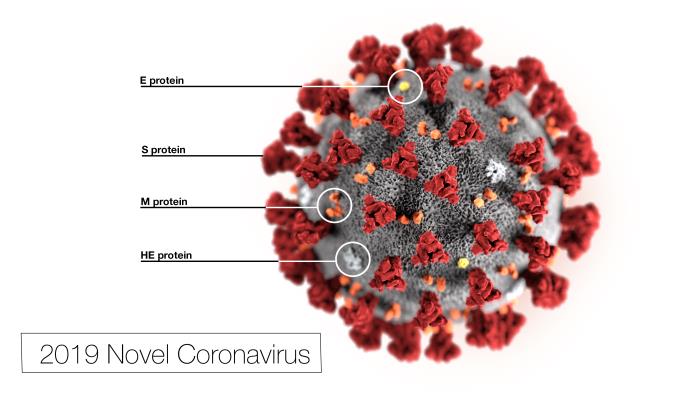
28 Mar NEJM: Trial of Lopinavir–Ritonavir in Adults Hospitalized with Severe Covid-19 Infection
MedicalResearch.com Interview with:

Dr. Bin Cao
Bin Cao, Yeming Wang, Guohui Fan,
Lianghan Shang, Jiuyang Xu, DingyuZhang, Chen Wang
on behalf of LOTUS-China Study Group
China-Japan Friendship Hospital; Wuhan Jintinyan Hospital;
Institute of Respiratory Medicine, Chinese Academy of Medical Science
MedicalResearch.com: What is the background for this study?
Response: In the past two months, the outbreak of Coronavirus Disease 2019 (COVID-19) has been spreading rapidly across the world. Science and technology is the most powerful weapon for human to fight against diseases, especially in such a pandemic setting. Seeking for effective antiviral medication is the most critical and urgent among the many scientific tasks in the pandemic.
At the most critical moment in the fight against COVID-19, Chinese clinical scientists have stepped forward under extremely difficult research conditions to carry out clinical trials in antiviral treatment including lopinavir–ritonavir and remdesivir, in a swift, decisive and effective manner. These trials have attracted worldwide attention.
Recently, the Lopinavir–ritonavir Trial for suppression of SARS-CoV-2 in China (LOTUS-China) has been completed, which, with great clinical significance, can provide strong evidence for the treatment of COVID-19 both in China and around the world.
MedicalResearch.com: Would you tell us about the drugs that were were tested in this study?
Response: Lopinavir–ritonavir is one of the three drugs prioritized for efficacy evaluation in World Health Organization (WHO) novel Coronavirus R&D Blueprint.
Lopinavir–ritonavir is a protease inhibitor widely used in treating acquired immune deficiency syndrome (AIDS).
During the outbreak of severe acute respiratory syndrome (SARS), the drug was shown with in vitro antiviral activity against SARS-CoV. Thereafter, during the epidemic of Middle East respiratory syndrome (MERS), lopinavir–ritonavir was tested as a candidate treatment option for antiviral therapy. However, the observational studies failed to provide convincing data about the drug’s efficacy and safety, and the randomized clinical trial is still proceeding. Based on previous experience from SARS and MERS, and guided by academician Chen Wang (Chinese Academy of Medical Sciences), Prof. Bin Cao (China-Japan Friendship Hospital) and Prof. Dingyu Zhang (Jinyintan Hospital), have led their front-line team to conduct a clinical trial in lopinavir–ritonavir against COVID-19 since the outbreak of the disease(LOTUS China, Lopinavir Trial for Suppression of SARS-Cov-2 in China). In WHO novel Coronavirus R&D Blueprint, lopinavir–ritonavir, remdesivir and monoclonal-polyclonal antibodies are recommended as drugs prioritized for efficacy evaluation.
MedicalResearch.com: What are the main findings?
Response: Conclusively, the result of the trial is that lopinavir–ritonavir can improve some clinical indicators, but different statistical methods show varying clinical significance. Besides, the drug side effects happen frequently but are acceptable. The analysis on all 199 critically ill patients undergoing randomization found that 14-day lopinavir–ritonavir treatment did not accelerate clinical improvement significantly.
However, If the 3 patients who died within 24 hours after randomization and did not receive lopinavir–ritonavir were removed from analysis, the time to clinical improvement in the lopinavir–ritonavir group would be one day shorter than control group with statistical significance. Furthermore, lopinavir–ritonavir group had higher percentage of patients with clinical improvement at day 14, and 5 days’ shorter stay in intensive care unit (ICU). There was also a trend in reduction of the 28-day mortality in lopinavir–ritonavir group.
In terms of safety, the study showed that gastrointestinal adverse events including nausea, vomiting and abdominal discomfort, as well as elevated total bilirubin were more common in lopinavir–ritonavir group. Viral load test showed that approximately 45% of the patients in lopinavir–ritonavir group had positive RNA detective on day 14, which suggested that some patients might need an extension in the course of the antiviral drug.
Based on the result of 199 patients in the clinical trial, the clinical improvement benefited from lopinavir–ritonavir was not statistically significant. The unoptimized timing and duration of drug administration was probably the underlying reason. In order to confirm the actual efficacy of lopinavir–ritonavir, further trials with larger sample size, milder patients, earlier drug administration and extended treatment course are helpful for finding patients who may benefit from the treatment.
Further scientific interpretation is necessary as different statistical methods generate varying clinical significance of lopinavir–ritonavir.
Comments from international medical experts:
Dr. Eric J. Rubin and Dr. Lindsey R. Baden, the editor-in-chief and deputy editor of the New England Journal of Medicine, commented in the editorial that “This was a heroic effort. Health care workers in Hubei province have provided patient care in an overwhelming epidemic while they themselves are one of the highest risk groups for development of disease. As we saw during the 2014 Ebola outbreak in West Africa, obtaining high-quality clinical trial data to guide the care of patients is extremely difficult in the face of an epidemic, and the feasibility of a randomized design has been called into question. Yet Cao’s group of determined investigators not only succeeded but ended up enrolling a larger number of patients (199) than originally targeted.”
During the peer review process of the paper, an anonymous reviewer of the New England Journal of Medicine commented that “This is a very important trial and resulting data on a condition that is clearly gripping the world’s attention right now. The authors must be commended and congratulated for conducting a clinical trial, so quickly, while in the midst of incredibly taxing clinical demands. The world owes you a debt of gratitude in getting this done.”
Bruce Aylward, the assistant director-general of WHO, wrote an e-mail to Prof. Bin Cao: “HUGE congratulations to you and your team who are doing such impressive and important work. I am simply in awe of what you have put in place and the trials you are running.”
Citation:
A Trial of Lopinavir–Ritonavir in Adults Hospitalized with Severe Covid-19
Bin Cao, M.D., Yeming Wang, M.D., Danning Wen, M.D., Wen Liu, M.S., Jingli Wang, M.D., Guohui Fan, M.S., Lianguo Ruan, M.D., Bin Song, M.D., Yanping Cai, M.D., Ming Wei, M.D., Xingwang Li, M.D., Jiaan Xia, M.D., et al.
March 18, 2020
DOI: 10.1056/NEJMoa2001282
JOIN OUR EMAIL LIST
[mailpoet_form id="5"]We respect your privacy and will never share your details.
[last-modified]
The information on MedicalResearch.com is provided for educational purposes only, and is in no way intended to diagnose, cure, or treat any medical or other condition. Always seek the advice of your physician or other qualified health and ask your doctor any questions you may have regarding a medical condition. In addition to all other limitations and disclaimers in this agreement, service provider and its third party providers disclaim any liability or loss in connection with the content provided on this website.
Last Updated on May 12, 2020 by Marie Benz MD FAAD
